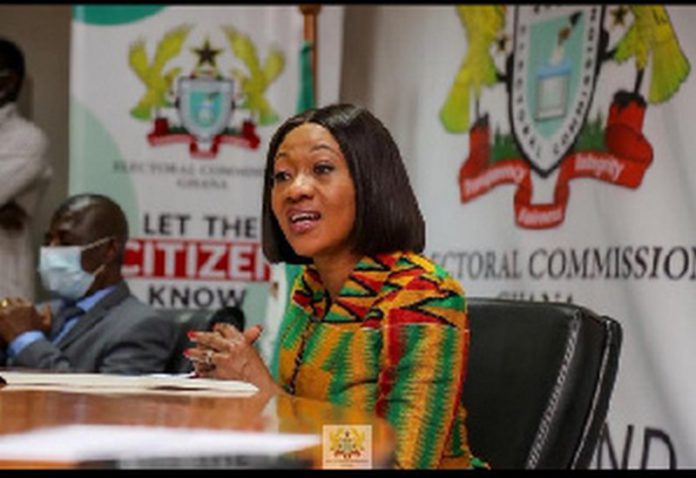At the 1992 & 1996 General Elections, I coordinated the monitoring of the vote count and declaration of results on behalf of the New Patriotic Party (NPP).
From the 2000 run-off till 2012, I ran an Independent Monitoring Syndicate that acted as a control for the NPP official Team, as well as offering a third-party corroborative source for verifying the outputs from the Electoral Commission (EC).
The context for the above was two- fold: Firstly, that Harruna Esseku & yours truly were NPP representatives to the inaugural Inter-Party Advisory Committee (IPAC); Secondly, I oversaw the 1st Voters Registration of 1995 on behalf of all the registered Opposition parties.
The foregoing is not intended as a ‘blowing your horn’s show-off. Far from it. On the contrary, it is intended to assure readers that the analysis & conclusions contained in this piece are factually informed and premised.
From 1992 till 2016, the objectives for the monitoring & declaration of the Elections in Ghana were very clearly set out and understood by the EC, the participating political parties, & other independent contestants, namely:
- To ensure that every valid vote cast at a General Election was counted;
- The total number of valid votes cast at each polling station is accurately recorded & apportioned to the candidates at that polling centre;
- The record of votes totalled at all polling stations in a constituency are accurately added up at the Constituency Collating Centre
- That in the case of Parliamentary Elections, the Candidate obtaining the highest number votes collated at the Constituency Centre is publicly declared as the winner and the record sent immediately to the EC “strongroom” in Accra for vetting & confirmation before certification by the EC Chairperson
- In the case of the Presidential Election, the votes obtained by each candidate are publicly announced at the Constituency Collating Centre, and then transmitted to the EC office to be vetted & confirmed, and then added to a cumulative running total that will be certified & announced by the EC Chair in their capacity as the Returning Officer for the Presidential Elections
The above template is what was used for the first seven (7) General Elections of the 4th Republic, and served us well.
Whatever disagreements & arguments about verification were raised at various points of tabulation.
I have never heard of any complaint of inadequacy of the established process that necessitated or justified for it to be tweaked.
Yet out of the blue, and without proper rhyme or reason, Jean Mensa’s EC introduced a new tier of collation for the 2020 Elections, namely regional collation of constituency declarations with summarised regional tabulations transmitted to the Accra strongroom.
Whilst the addition of the new arrangement was never spelt out in clear & unambiguous terms, the potential danger this posed for the integrity of the Electoral Outcome was clear to some of us.
Complaining was futile because this major change was ‘smeared’ into CI 127 without much fanfare or discussion as to its merits & demerits.
Fact is that for the first time since its establishment, IPAC was not involved in the preparation of the Regulations that would guide and implement a General Election.
The obvious injury to the Vetting, Verification & Confirmation of Totals in the EC strong room was fatal for two main reasons:
Firstly, the so called “strong room” could no longer receive information directly from each and every constituency in the country, as had been the practice in all previous elections.
Instead, the strong room was being supplied with secondary Regional summaries which, given the EC’s unsolicited promise of a 24-hour delivery of the outcome of the elections, left very little time for the party representatives to vet & confirm the Presidential tallies from all Constituencies.
It was simply trusting the regional tallies or lump them since the EC Chair had the power to override objections and go ahead to announce results.
The above explains why the “EC strong room” remained dormant for much of the Election Day, with the party representatives left in the hapless situation of simply watching & waiting on the needless tabulation going on at the regions.
Unfortunately for the EC, the experience gathered from seven previous Elections had honed all parties to the need for them to verify everything from the fundamental sources, rather than trust EC’s regional tallies.
With all the comic relief “tragedies of cocked-up arithmetic errors going on with the tabulation” of already declared totals, Ghanaians are entitled to a rational & sensible answer to the question:
As Ghana does not choose its president via an electoral college system, why did the EC of Ghana decide to resort to regional tabulation this time to reach of the outcome?
We are waiting breathlessly for your answer, Madam Jean Mensa.
It’s not for nothing the sages advise that “if it ain’t broke, don’t fix it!”
Sounds like very good advice to me, unless of course you intend that the hand of God intervenes to direct the outcome of the election.
It is As IT Is.
***
The writer, Dr. Charles Wereko-Brobby is an engineer, politician, diplomat and businessman. He is a Chief Executive Officer of Ghana’s Volta River Authority.

